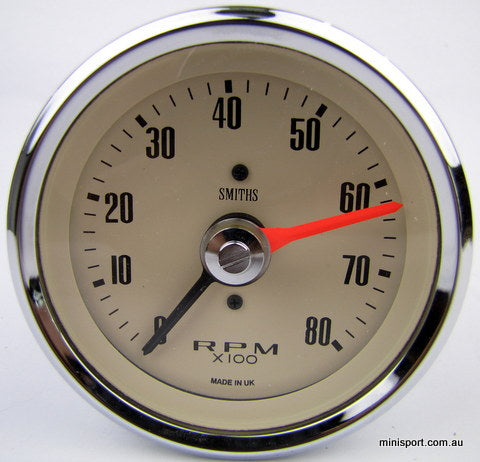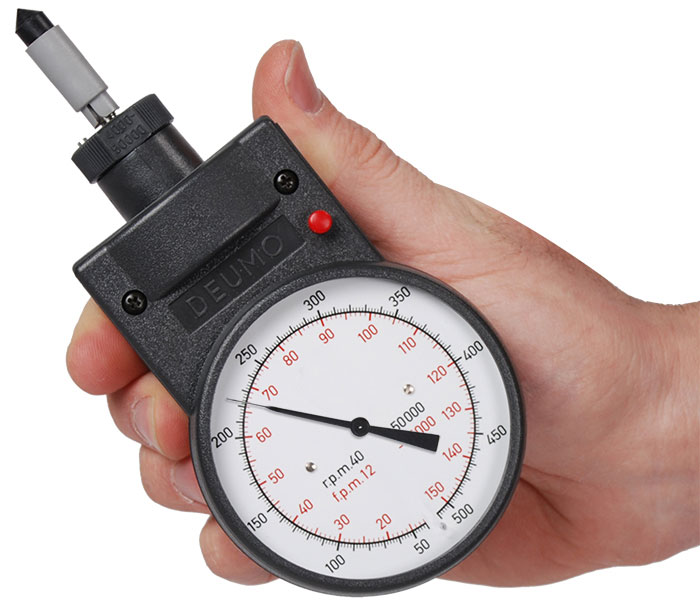Specialist Tips for Preserving and Calibrating Your Tachometer
Specialist Tips for Preserving and Calibrating Your Tachometer
Blog Article
Secret Reasons Having a Tachometer Is Vital for Preserving Engine Wellness and Performance
This modest yet critical instrument plays a pivotal role in the maintenance of an engine's health and wellness and efficiency. By giving real-time information on engine rate and RPM levels, a tachometer supplies very useful insights that straight impact the performance and durability of the engine. Allow's explore the key factors behind its critical function in maintaining engine health and wellness and effectiveness.
Avoiding Engine Over-Revving

To protect the engine from prospective damage, it is critical to execute steps that stop over-revving, a technique that can lead to costly repairs and reduced engine life-span. Over-revving happens when the engine's rotational speed exceeds the maximum limitation set by the supplier, creating undue anxiety on inner parts such as pistons, valves, and linking rods. This extreme stress can cause mechanical failings, including curved valves, harmed pistons, and even catastrophic engine failure.
A rev limiter is a gadget that regulates the optimum RPM (revolutions per minute) of the engine by either reducing off gas flow or spark to the engine when the pre-set limit is gotten to. Normal maintenance checks to ensure the engine is in optimal problem can also assist in stopping over-revving occurrences and lengthening the engine's life-span.
Enhancing Gas Consumption
Reliable gas usage plays an important duty in optimizing the performance and sustainability of an engine. tachometer. Maximizing gas usage not only assists in reducing operational prices yet additionally reduces the environmental influence of lorry exhausts. By using a tachometer to keep an eye on engine rate and change driving behaviors appropriately, drivers can accomplish far better fuel effectiveness
Preserving a consistent speed and staying clear of sudden accelerations and slowdowns can dramatically improve fuel economic situation. In addition, appropriate equipment option based on the tachometer readings makes certain that the engine operates within its optimal range, causing more efficient gas combustion.
Consistently checking the tachometer can likewise help determine any ineffectiveness or mechanical concerns that might be impacting fuel consumption. For example, a sudden boost in fuel use without an equivalent change in driving practices might indicate an issue that needs interest.
Monitoring Engine Health
Monitoring engine health is essential for making certain optimal efficiency and longevity of the vehicle. By using a tachometer to check engine speed, chauffeurs can detect irregularities that might indicate prospective problems with the engine. A tachometer supplies real-time data on engine revolutions Website per min (RPM), permitting chauffeurs to recognize any kind of uncommon spikes blog or decrease in RPM that can signal problems such as misfires, worn-out components, or engine overheating.

Regularly keeping an eye on engine wellness through the usage of a tachometer enables vehicle drivers to resolve issues without delay prior to they escalate and cause significant damage. As an example, detecting a decline in RPM could show fuel delivery problems or a blocked air filter, while a sudden rise in RPM might point to concerns with the transmission or exhaust system. By staying vigilant and receptive to adjustments in engine efficiency, drivers can avoid costly repair work and ensure the total wellness and effectiveness of their lorry.
Extending Engine Life Expectancy
Making sure the durability of an engine needs persistent upkeep techniques and attentive tracking of essential performance why not find out more indications. Extending an engine's lifespan is vital for decreasing overall automobile maintenance expenses and preventing unexpected malfunctions. A tachometer plays a significant role in this aspect by providing real-time information on engine speed, enabling vehicle drivers and technicians to make informed choices to stop extreme damage.

In addition, routine upkeep based on tachometer analyses, such as prompt oil adjustments and ignition system replacements, can substantially add to extending the engine's longevity. On the whole, integrating a tachometer right into regular engine monitoring practices is vital for protecting the engine's health and efficiency over the long-term.
Saving Cash on Services
To effectively take care of automobile maintenance expenses and lessen unexpected breakdowns, leveraging the insights supplied by a tachometer can be crucial in saving money on fixings. A tachometer assists in monitoring the engine's RPM (transformations per min), making it possible for drivers to run within the suggested range. By remaining within these optimum RPM levels, excessive pressure on the engine can be avoided, minimizing the likelihood of pricey repairs as a result of exhausting the engine (tachometer). Furthermore, a tachometer can notify vehicle drivers to possible concerns such as engine misfires or failing components, permitting for very early treatment prior to these issues rise and cause a lot more comprehensive-- and expensive-- repairs.
Additionally, by utilizing the information from a tachometer to exercise smooth velocity and slowdown, vehicle drivers can extend the life-span of their car's parts, ultimately conserving money on upkeep and replacements. In general, the insights given by a tachometer empower motorists to make educated decisions that can avoid unnecessary wear and tear on the engine, resulting in considerable price financial savings in the future.
Conclusion
To conclude, a tachometer plays a critical duty in keeping engine health and wellness and performance by preventing over-revving, maximizing gas consumption, checking engine wellness, extending engine lifespan, and conserving cash on fixings. It is a vital device for making sure that the engine operates within safe restrictions and does at its finest, ultimately adding to the longevity and total efficiency of the car.
Report this page